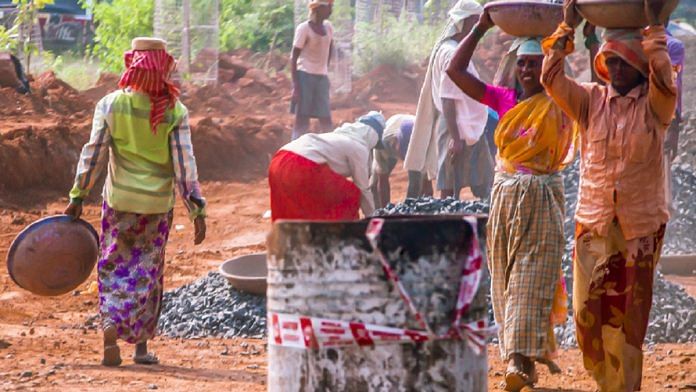New Delhi: Existing demographics and socio-economic factors can hamper women’s ability to adapt to climate change, especially in developing countries such as India, Pakistan and Bangladesh, suggests a study led by the University of East Anglia (UEA) in Norwich, England.
Equitable adaptation in climate change hotpots has been a growing area of concern as small shifts in climatic conditions, social structures, and livelihood sensitivity can together increase the vulnerability of populations in these areas. This is because existing social structures and power relations may shape the experiences of women and men differently.
Due to lack of access to resources, unequal divisions of work, and cultural norms around mobility and decision-making, women may be at a disadvantage to adapt.
The research suggests that male migration and poor working conditions for women combine with institutional failure or poverty to hamper women’s ability to adapt to climate variabilities and change.
The study, published in the journal Nature Climate Change Tuesday, drew on data from 25 case studies across hotspots in Asia — including India, Nepal, Pakistan, Bangladesh — and Africa.
Also read: India’s greenhouse gas emissions highest in the world in 2018
How environmental stress affects women
The researchers have highlighted how and in what ways women’s ability to make meaningful choices and strategic decisions contribute to adaptation responses.
The scientists argue that environmental stress weakens women even when household structures and social norms are supportive, or legal entitlements available. Increasing responsibilities and burdens are placed on women, especially those who are young, less educated, and belonging to lower classes, or marginal castes and ethnicities.
While male migration for work contributes to higher incomes, the degree of such support is uncertain and irregular. In the absence of supportive infrastructure and services, and a steady income, women often work harder, in poorer conditions, and for lower wages.
This was true across the hotspots studied, with negative wellbeing outcomes seen particularly in the neglect of their health and nutrition.
“In a sense, women do have voice and agency, as they are actively engaging in both production and reproduction, yet this is not contributing to strengthening longer-term adaptive capacities, or indeed their well-being,” Nitya Rao of UEA said in a statement.
“Our analysis suggests that some common conditions such as male migration and women’s poor working conditions combine with either institutional failure or poverty, to constrain women’s ability to make choices and decisions,” Rao said.
However, she added that these barriers, if addressed in creative ways, could potentially strengthen adaptive capacities.
The findings call for international agreements to deliberate on what builds the adaptive capacity of women and men in specific contexts to support sustainable, equitable, and effective adaptation.
The researchers suggest that, firstly, effective social protection, such as the universal public distribution system for cereals in India, can help relieve immediate pressures on survival.
Also read: Pollution, climate change, malnutrition will affect our kids for life, Lancet report says



